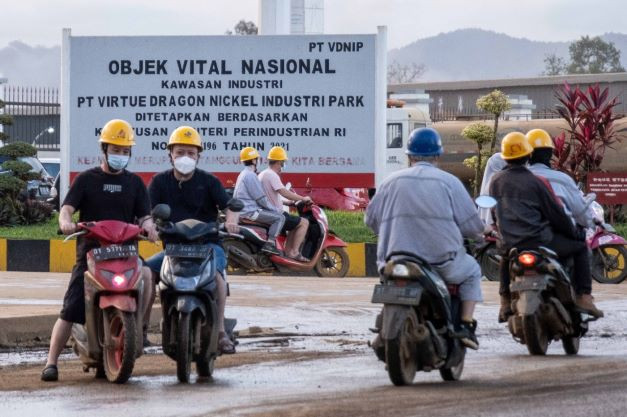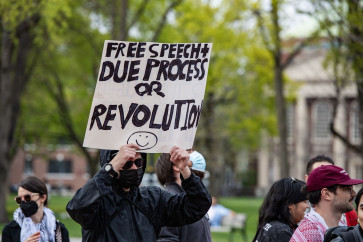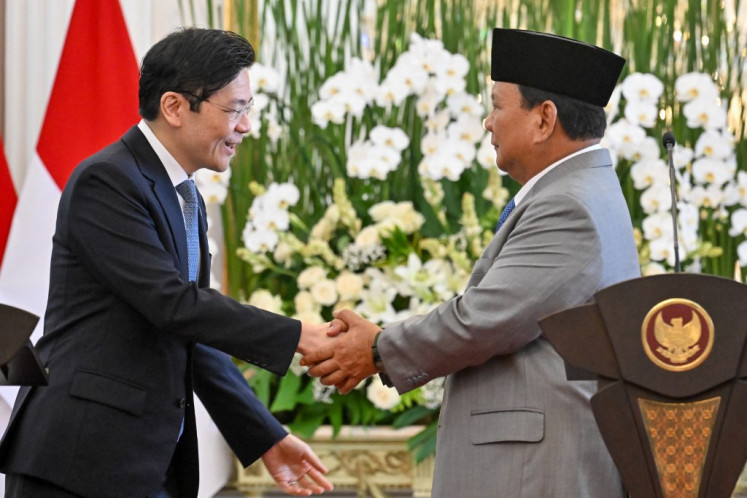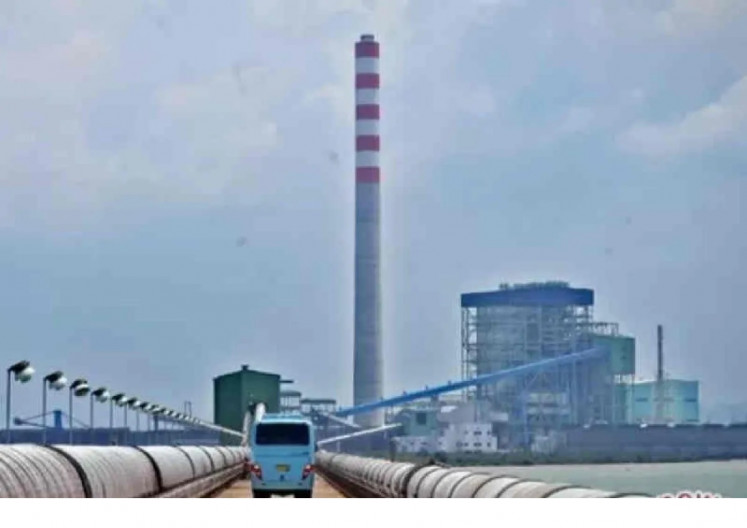Local banks steer clear of downstream projects
Lending mostly directed toward nickel processing.
Change text size
Gift Premium Articles
to Anyone

T
he government has taken issue with the domestic banking industry’s reluctance to finance the development of downstream mining industries, which has left foreign financiers to fill the gap.
Foreign banks typically require only a 10 percent equity stake for downstream projects in Indonesia and offer comparatively low interest rates, Investment Minister Bahlil Lahadalia said on Jan. 24, while domestic banks called for equity of between 30 and 40 percent and demanded higher interest rates for the same undertaking.
Even if local banks’ high requirements were met, he added, there was no guarantee that such loans would be granted. He warned that Indonesian banks were in danger of missing out on the downstreaming opportunity.
"This is homework for our banks and financial institutions," Bahlil said at the Mandiri Investment Forum in Jakarta on Wednesday.
He lamented that 90 percent of smelters built in the country were owned by foreign entities, even though 80 percent of mining business licenses (IUP) were held by Indonesians.
Most of the revenue from these companies, Bahlil said, would likely be channeled abroad to pay debts to foreign banks, which would cause foreign exchange outflows and could threaten the stability of the rupiah.
Read also: Going heavy on metals: Jokowi vows to keep minerals at home
Indonesia is seeking transform from a raw materials exporter to an exporter of higher-value products through increased industrialization. The government’s strategy to achieve this has included bans on the export of certain key commodities.
The country’s current nickel export ban will be supplemented by a ban on the export of bauxite, the ore from which aluminum is commercially extracted, in June of this year. Tin and copper export prohibitions are to follow sometime this year.
Experts said Indonesian banks were willing, in principle, to finance downstream projects but that there were constraints preventing them from doing so at the scale the government wanted.
Loans to the base metal processing industry have tripled in the past five years, with more than Rp 16 trillion (US$1.07 billion) outstanding as of June of last year, according to estimates by state-owned Bank Mandiri mineral expert Ahmad Zuhdi Dwi Kusuma.
That growth, however, was “biased” toward nickel processing, Ahmad said, an area in which the country had a demonstrable advantage. Other downstream mineral projects did not enjoy the same favor from local banks.
Indonesia has the largest nickel reserves in the world. It has only the fifth-largest bauxite reserves and eleventh-largest copper reserves, according to the United States Geological Survey (USGS).
Meanwhile, downstream coal projects had a “questionable return” because of sustainability concerns, he said.
“There is no guarantee that [other downstream projects] will work like nickel,” the analyst said on Wednesday, “It is impossible for banks to finance projects with questionable payback periods.”
Doddy Ariefianto, associate head of the finance program at Binus University, said foreign lenders were more willing to finance smelters because they had more experience financing large projects and operated at greater scales, which influenced their ability manage risk and pricing.
Smelting businesses were relatively new to Indonesia, he noted, and only a few firms were entering the business, making the risks relatively high, especially in the event of a sudden regulatory change.
Foreign banks, he said, were powerful enough to ensure the continuation of downstream projects, making them more suitable financiers than local banks.
“Is Pak Bahlil a banker? […] Don’t make an analysis and ask others to pay for it,” Doddy said on Thursday, “Banks do not have a political preference. It’s just business.”
Read also: Jokowi asks banks to support downstream financing
The Indonesian banking sector is small by world standards. The country’s bank-asset-to-GDP ratio was only 43.3 percent in 2021, below the world average of 71 percent, according to World Bank data.
The same data showed that Vietnam, Thailand and Malaysia had ratios of between 136 and 153 percent of GDP that year.
President Joko “Jokowi” Widodo has asked the local banking sector on multiple occasions to support the country’s downstream development and not to "overcomplicate" lending to such projects.
The Indonesian State-Owned Lender Association (Himbara), for one, has claimed its members will support downstreaming in the country, as it believes the process has reached a point of no return.
“[Downstreaming] will not stop. Therefore, the banking industry is committed to supporting downstream processes so that the Indonesian people can enjoy the added value [from exports],” Himbara chairman Sunarso said in a press conference at the State Palace on Jan. 16.









